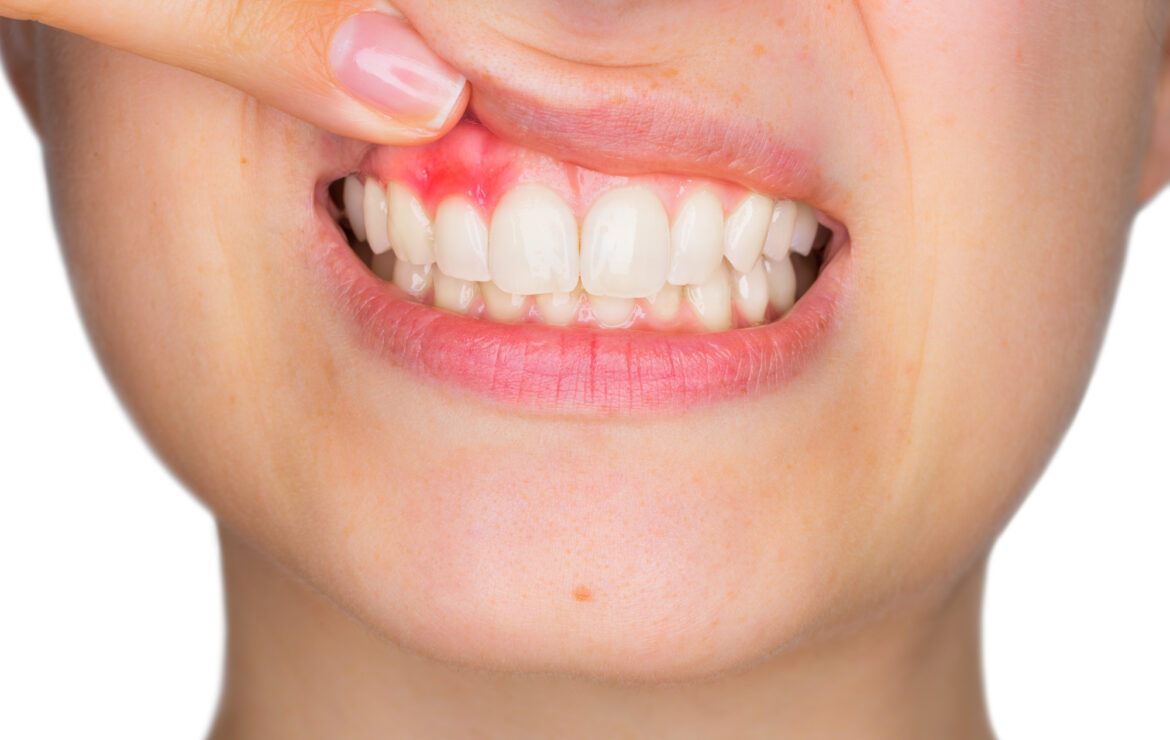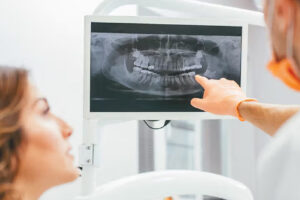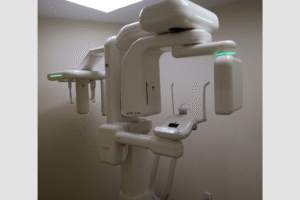Why Are My Gums Bleeding?

Why Are My Gums Bleeding?
That small streak of red in the sink after you brush can be alarming. You may find yourself standing there, staring at your toothbrush, and asking the very common question: “why are my gums bleeding?”
While seeing blood might feel scary, it’s important to know that this symptom is rarely normal. Your gums, when healthy, should not bleed easily. Bleeding is almost always an indicator that something is irritating or compromising the tissue around your teeth. Unfortunately, many people ignore this warning sign, assuming it’s just due to brushing too hard.
This guide is designed to help you understand the true causes of bleeding gums, from simple daily habits to more serious underlying dental conditions. At Nova Dental Hospital in Gandhinagar, we specialize in diagnosing and treating gum health issues, providing effective, localized bleeding gums treatment Gandhinagar residents trust. We’ll walk you through immediate home remedies and explain when professional care is the only true answer to achieving lasting oral health.
The Primary Culprit: Gum Disease (Gingivitis)
For the vast majority of people, the answer to “why are my gums bleeding?” points directly to one thing: gum disease, specifically its mildest form, gingivitis.
Understanding the Mechanism of Gingivitis
Gingivitis is an inflammatory condition caused by plaque buildup. Plaque is a sticky, colorless film of bacteria that constantly forms on your teeth. If this plaque isn’t removed through daily brushing and flossing, it begins to harden into tartar (calculus).
This tartar buildup near the gum line irritates the sensitive gum tissue, causing inflammation, known as gingivitis. The inflamed gums become swollen, red, and tender, making them extremely susceptible to bleeding, particularly when disturbed by brushing or flossing. The bacteria in the plaque also release toxins that break down the tiny blood vessels in the gums, leading to easy bleeding.
Recognizing Gingivitis Symptoms and Treatment
The good news about gingivitis is that it is often reversible. If caught early, professional care and improved hygiene can quickly resolve the problem. The telltale gingivitis symptoms and treatment steps are as follows:
- Symptoms: Redness, swelling, tenderness, and most critically, easy bleeding during brushing or flossing.
- Simple Fix: Professional cleaning to remove the hardened tartar, followed by strict, consistent daily brushing and flossing at home.
Because gingivitis is so common, many patients seek effective bleeding gums treatment Gandhinagar for this exact issue. Addressing it early is the critical first step in preventing the condition from worsening.
Advanced Stages: Periodontitis and Serious Gum Issues
If gingivitis is ignored, it doesn’t just stay put—it progresses to a more severe and dangerous stage called periodontitis. This advanced form of gum disease is characterized by destruction that goes beyond the gum tissue and starts impacting the bone that holds your teeth in place.
The Progression and Signs of Periodontitis
In periodontitis, the chronic inflammation causes the gums to pull away from the tooth roots, forming deep, infected pockets. These pockets are magnets for bacteria, which continue to destroy the surrounding bone and ligament that anchor the tooth.
Advanced gum disease presents with more serious symptoms than simple gingivitis:
- Gum Recession: Your teeth may appear longer because the gums have pulled away.
- Persistent Bad Breath: The deep infection and pus in the pockets cause a constant, foul odor.
- Pus: Discharge around the gums.
- Loose Teeth: As the bone structure is compromised, teeth may shift or become loose.
Advanced bleeding is a major indicator that bone loss may be occurring and requires immediate professional intervention. It is essential to recognize these signs and seek comprehensive gum disease solutions right away to save your teeth.
Professional Solutions for Advanced Disease
When gum disease reaches this stage, regular brushing and flossing are no longer enough. The only way to stop the infection and prevent tooth loss is through specialized treatment. At our clinic, we offer advanced gum disease solutions such as:
- Scaling and Root Planing (Deep Cleaning): Detail this specialized procedure as the primary solution for early-to-moderate periodontitis.
- Specialized Surgery: Briefly mention when advanced solutions like flap surgery or laser treatment are necessary (for severe cases).
Less Common Causes of Bleeding Gums
While gum disease is the most frequent answer to “why are my gums bleeding,” there are several other factors—ranging from habits to systemic health—that can contribute to gum bleeding.
1. Mechanical Trauma and Technique Issues
Sometimes, bleeding is simply the result of how you treat your gums.
- Improper Brushing or Flossing: Using a hard-bristled toothbrush or applying excessive force when brushing can damage the delicate gum tissue, causing superficial bleeding. Similarly, snapping floss aggressively between teeth can cut the gums. Switching to a soft brush and using gentle, circular motions is an easily fixable cause of why are my gums bleeding.
- New Oral Hygiene Routine: Note that bleeding often happens when someone first starts flossing or uses a new device. If you continue flossing gently, the bleeding should stop within a week as the inflammation subsides.
- Ill-fitting Dental Appliances: Dentures, bridges, or retainers that don’t fit correctly can rub against the gum tissue, causing constant irritation and bleeding.
2. Hormonal Changes
Hormonal fluctuations can make the gums more sensitive and increase their reaction to plaque, even if your hygiene is consistent.
- Pregnancy Gingivitis: Pregnancy causes a surge in hormones like progesterone and estrogen, which increase blood flow to the gums. This heightens the inflammatory response to plaque, making bleeding gums a common occurrence for expectant mothers. This is a temporary cause of bleeding gums, but it still requires dedicated oral care.
- Menstruation and Menopause: Women may notice minor gum sensitivity and bleeding during certain phases of their menstrual cycle or during menopause.
3. Medication Side Effects
Certain medications can increase your tendency to bleed or cause gum changes.
- Blood Thinners (Anticoagulants): Medications prescribed to prevent blood clots can naturally increase bleeding when you brush or floss. If you are on these medications, it is critical to inform your dentist and be meticulous about preventing plaque buildup, which would otherwise trigger bleeding.
- Certain Antihypertensives: Some drugs used for high blood pressure can cause gingival enlargement (gums overgrowing the teeth), which makes cleaning difficult and can lead to inflammation and bleeding.
4. Underlying Systemic Health Conditions
In rare cases, chronic or persistent bleeding gums may signal a health issue elsewhere in the body:
- Diabetes: Uncontrolled blood sugar compromises the body’s immune system, making it much harder to fight off infections like gum disease.
- Vitamin Deficiencies: Severe deficiencies in Vitamin C (Scurvy) and Vitamin K (which aids in clotting) can lead to easy bleeding and poor healing.
- Blood Disorders: Conditions that affect blood clotting or platelet production can manifest as spontaneous or excessive gum bleeding.
Immediate Action: How to Stop Bleeding Gums at Home
If you’ve noticed your gums bleeding and need advice on how to stop bleeding gums right now, there are several simple, effective home remedies you can try. These steps are designed to calm inflammation and prevent further trauma.
Do’s: Actionable Steps for Immediate Relief
- Use a Soft-Bristled Toothbrush and Gentle Technique: Switch immediately to a soft-bristled brush. Brush using gentle, circular motions, angling the bristles toward the gum line. Avoid scrubbing back and forth, as this can exacerbate bleeding.
- Floss Consistently, But Gently: The most crucial answer to how to stop bleeding gums is to remove the plaque causing the problem. Do not stop flossing. Instead, floss gently once a day. If your gums are inflamed, they may bleed initially, but the bleeding should stop within a week as the gums heal.
- Rinse with Warm Salt Water: Dissolve half a teaspoon of salt in a glass of warm water. Swish the solution gently for 30 seconds and spit it out. Salt water is a natural disinfectant that can help soothe inflammation and reduce swelling, providing temporary relief for the causes of bleeding gums.
- Apply a Cold Compress: If swelling is present, applying a cold compress (ice wrapped in a cloth) to the outside of your cheek near the affected area for 10 minutes at a time can help constrict blood vessels and reduce localized swelling.
Don’ts: Mistakes to Avoid
- Don’t Stop Flossing: Stopping flossing ensures the plaque remains, guaranteeing the inflammation (and thus, the bleeding) will continue.
- Don’t Use Alcohol-Based Mouthwash: Mouthwashes containing high amounts of alcohol can be very irritating to already inflamed gums.
- Don’t Ignore the Problem: Home remedies are temporary solutions. If the bleeding persists for more than a week, you need professional intervention.
Professional Bleeding Gums Treatment in Gandhinagar
While home care is essential for maintenance, only a professional can address the root causes of bleeding gums, especially when tartar, deep pockets, or systemic issues are involved. At Nova Dental Hospital, we offer a full spectrum of effective bleeding gums treatment Gandhinagar residents can rely on.
The Diagnostic and Treatment Process
When you visit us, we start with a thorough periodontal examination, including digital X-rays, to accurately measure the depth of the gum pockets and assess any bone loss. The treatment we recommend will depend entirely on the stage of your gum disease.
- Standard Professional Cleaning: For mild cases (gingivitis), a routine professional cleaning is often the only bleeding gums treatment required. This removes all visible tartar and plaque above and slightly below the gum line, allowing the gums to quickly return to a healthy, non-bleeding state.
- Deep Cleaning (Scaling and Root Planing): If the disease has progressed to early or moderate periodontitis, the gold standard treatment is scaling and root planing. This specialized procedure is a non-surgical deep clean:
- Scaling: Removing tartar from above and below the gum line.
- Root Planing: Smoothing the root surfaces to eliminate rough spots where bacteria collect, making it easier for the gums to reattach to the tooth.
- Advanced Gum Disease Solutions: For severe periodontitis with significant bone loss, we may recommend advanced gum disease solutions such as laser gum therapy or surgical intervention. These procedures are designed to access deeper infection pockets, reduce the pocket size, and, in some cases, regenerate lost bone and tissue.
Diagnosis is Key: The most important part of successful bleeding gums treatment Gandhinagar is a precise diagnosis by our skilled periodontists. We ensure that we are treating the exact causes of bleeding gums to provide a long-lasting cure, not just a temporary fix.
Frequently Asked Questions (FAQ)
Q: Should I stop flossing if my gums bleed? A: Absolutely not. Bleeding gums are a sign of inflammation caused by plaque. The act of flossing removes the plaque that is causing the problem. If you stop flossing, the condition will only worsen. Continue to floss gently once daily.
Q: How long does it take for my bleeding gums to stop? A: If the bleeding is caused by mild gingivitis and you start practicing excellent oral hygiene and using salt water rinses, you should see improvement within three to seven days. If the bleeding persists after a week, it is a strong indicator that you need a professional deep cleaning to remove tartar.
Q: Does mouthwash help or hurt bleeding gums? A: Non-alcohol based mouthwashes can help rinse away loose debris, but they do not treat the underlying causes of bleeding gums (plaque/tartar). Avoid high-alcohol mouthwashes, as they can irritate inflamed tissue. In some cases, a dentist may prescribe a specific antimicrobial rinse as part of your bleeding gums treatment.
Q: When should I see a dentist about my bleeding gums? A: You should see a dentist immediately if the bleeding persists for more than a week, if it is accompanied by severe swelling, pain, loose teeth, or if you notice a constant bad taste in your mouth. These are signs that you may have advanced gum disease requiring professional gum disease solutions.
Conclusion: Your Path to a Confident Smile
If you’ve been wondering “why are my gums bleeding,” the answer is usually simple: your gums are sending you a warning sign about inflammation and the need for better care. Bleeding gums are not a normal part of life; they are treatable.
Don’t let the fear of gum disease solutions hold you back from a healthy smile. Whether you need guidance on how to stop bleeding gums at home or require professional bleeding gums treatment Gandhinagar, our experienced team at Nova Dental Hospital is here to help. We are committed to diagnosing the exact causes of bleeding gums and providing the effective, gentle care necessary to restore your gum health.
Take the first step toward a healthy, non-bleeding smile. Contact Nova Dental Hospital today to schedule your consultation!










